
How to Retire to Sarasota
At 61, I’ve been thinking about the rest of my life. Not that I’m ready to give up the mental and social stimulation of my longtime journalism career. But that doesn’t mean I haven’t secretly been studying the family, friends and former colleagues who’ve deep-sixed the nine-to-five.
What do they do all day? Are they bored silly, or have they discovered that deeply satisfying “encore career” or “third age” or “next chapter” that sociologists have been going on about since some 10,000 baby boomers started turning 65 every day?
Turns out, in my curiosity, I have plenty of company. Chris Farrell, senior economics contributor on the American Public Radio show, Marketplace, and author of the new book, Unretirement: How Baby Boomers Are Changing the Way We Think About Work, Community and the Good Life, nailed it when he spoke last fall at a fund-raising luncheon in Sarasota for iTN Suncoast, the nonprofit that provides low-cost rides to seniors who can no longer drive themselves.
“It’s the defining question of our era,” Farrell told us. “What’s next? What do I want to do?”
I talked to Farrell after the luncheon, and he offered some historical perspective on the notion of retirement. Until 1950, he says, Americans were retired for just three years on average before they died. Then came the 1935 Social Security Act, which really kicked in in the 1950s, he says, along with Medicare in the 1960s. In that golden era of U.S. economic growth, when wage gains were shared across the population and cheap real estate was proliferating in Florida and Arizona, Farrell says, “For the first time in history, a mass of middle-class Americans could live a life that had been only available to the wealthy.”
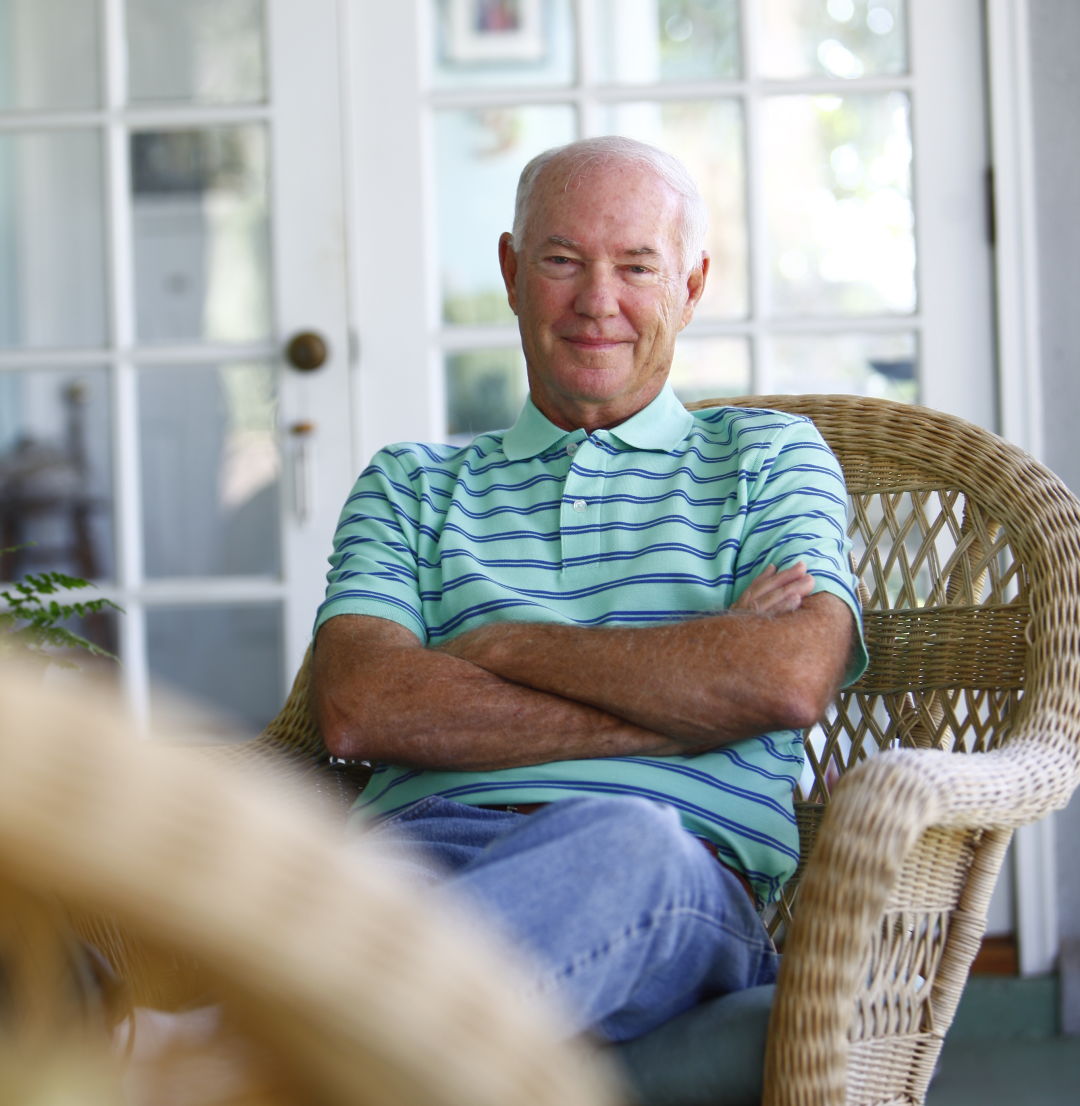
12th Judicial Circuit Court Judge Durand Adams retired from the bench in 2008.
“I’ve always loved movies and [writing]. Before I retired, I had such a good time writing for two documentary movies, On Any Given Monday, about the jury system, and Through the Tunnel [about the desegregation of Manatee County]. [Circuit Judge] Charles Williams and I formed a 501c3, and we partner with METV. We made two documentaries and American Dreams, about Hispanic immigration, comes out this month. It keeps me busy and it keeps me curious.”
Image: Gene Pollux
Among today’s retirees, many are like that older generation, primarily interested in a life of leisure. On a recent cruise to the ABC islands and Colombia, I met Jim and Anne Marie, a couple from Pinellas County who had each just turned 80. He logs onto a discount travel website every week looking for great deals. In the fall of 2016 they took weeklong cruises in September, October, November and December.
And, of course, it’s only natural to be newly retired and giddy about it. A Bradenton attorney who retired six months ago after a 30-plus-year legal practice is still in that honeymoon phase. (She asked to remain anonymous.)
“I am having the time of my life because I was so horribly, horribly structured before; I’d never in my life not worked from the time I was 14,” she told me. Golf? Tennis? “I don’t do any of that,” she says with a laugh. She has a trainer at the gym for the first time in 15 years, and she’s taking classes at Sarasota ACE (Adult and Community Enrichment, offered by the Sarasota County public school system)—French, voice, “a lot of music classes because I always loved music but I never had a chance to do anything for me,” she says. (She’s not alone; 63 percent of ACE students are 65 or older.) She knows that the day will come when she will address what’s next. Right now, though, she says, “I’m having too much fun.”
That forever-on-vacation attitude doesn’t work too long for today’s retirees, Farrell says, because we’re healthier and living so much longer. “You don’t want to live a life of leisure for 25 years,” he says. (Indeed, cruiser-of-the-month Jim notes that he retired from his job with the federal government early—at 55—played golf for a couple of years, drove himself crazy, moved to Mexico and taught high school for 10 years.)
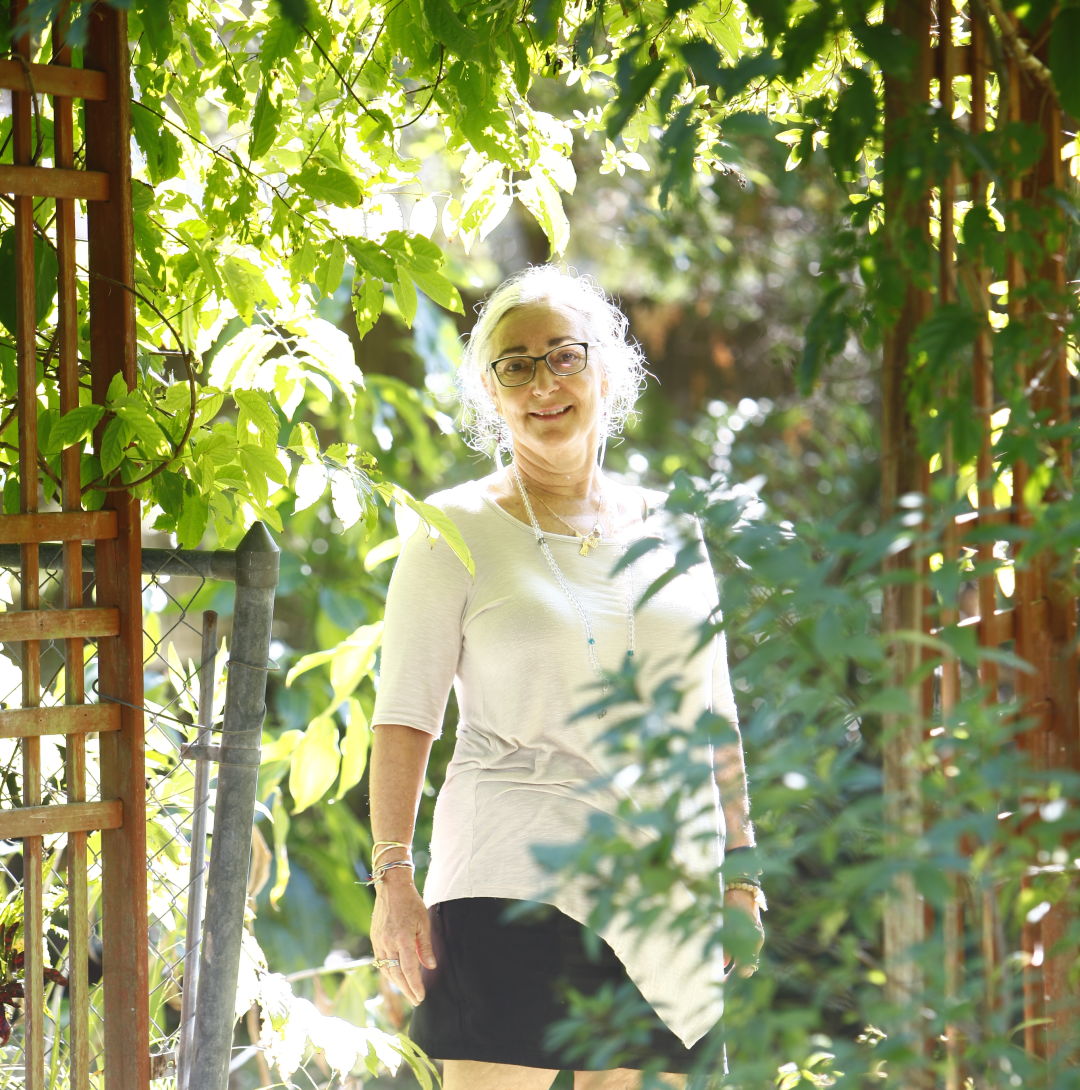
Living Walls owner Alison Bishop retired in 2013 to spend time with her ailing husband, who passed away in 2016.
“I spent 35 years working. [Now] I am just trying to ‘be,’ taking each day as it comes. I love it. I don’t feel like I’m sitting around bored ever. When you put a lot of the judgments aside, it’s like being a kid again; you get to do whatever you want.”
Image: Gene Pollux
While some hold onto the image of retirement as that cheerful golfing foursome teeing off into the future, Farrell says, “The majority of retirees [today] don’t really retire. They want to stay employed and engaged in ways they weren’t before”—many through paid work, but also through engaged work, such as volunteerism.
For boomers who want to slow down at work but aren’t ready for the gold watch, a lot of workplace experimentation is going on, says Farrell. More companies are institutionalizing phased-retirement programs, offering older employees the opportunity to consult on occasional special projects. Sticking around part-time to mentor younger employees is another hot area, he says. “It’s one of the ways people are negotiating a phased retirement.”
And many boomers are building on their talent, skills and knowledge by becoming entrepreneurs. A survey by the Ewing Marion Kauffman Foundation showed that a quarter of all businesses formed in 2015 were started by people 55 to 64. Most are sole proprietorships; a lot are consultancies, says Farrell. “They’re not out to hire 10, 20 or 30 people; you might have two or three part-time employees. You make less but you’re much happier.”
Engaged retirees are good for everybody, he maintains, because “keeping people independent and connected is critical to the health of the community.”
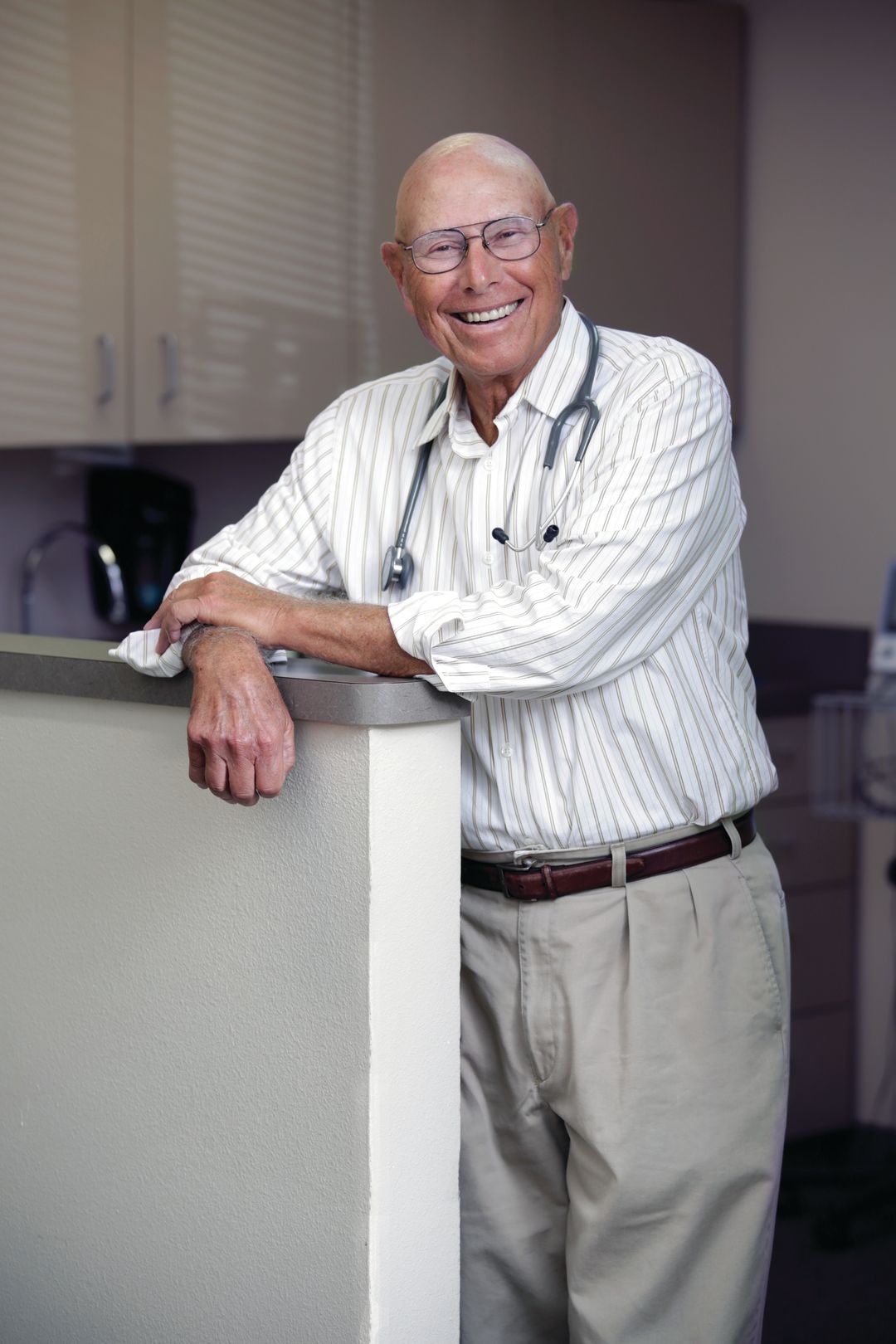
Dr. Albert Tripodi is one of 50 retired physicians who volunteer at the Senior Friendship Centers' medical clinics.
Image: Salvatore Brancifort
Dr. Albert Tripodi, 77, is a case in point. A busy internal medicine specialist in Syracuse, New York, for 35 years, he says he began visiting Sarasota every February some 20 years ago “to chase
the sun.” Then, “My wife died suddenly,” he says, “and my son was in practice with me; it was easy to turn the practice over to him gradually over a couple of years.” Fifteen years ago, at 60, he retired completely to Longboat Key, becoming a self-professed tennis bum half the day and a beach bum the other half. “That lasted six or eight months,” he says, “until I decided there had to be a little more to my life than that.”
Tripodi had heard of the Senior Friendship Centers medical clinics, which are staffed by all-volunteer retired physicians and dentists. “It was the perfect place,” he says. “I could practice medicine as much or as little as I wanted to. They have a system set up so you could get a limited license in Florida and you have sovereign immunity with the state so you don’t have to worry about malpractice. I started out slowly a few hours a week and built up more and more.”
Today Tripodi is volunteer medical director of the Friendship Center clinics. He spends four to six hours one day a week seeing from six to 12 patients and another day doing administrative duties and serving on the Friendship Centers board of directors. He’s among 50 volunteer retired physicians and 12 volunteer retired dentists who care for 2,500 to 3,000 patients a year—people 50 and older with chronic diseases like arthritis, heart disease, high blood pressure and diabetes.
“Some of the doctors have been working there for 25 or 30 years; some are in their 90s,” he says. “I’m on the shoulders of these 90-year-old guys, who inspire me every time I go to the clinic.”
The rest of the week, Tripodi enjoys the beach, bicycles (“I’ve put 50,000 miles on these streets over 20 years”), attends cultural events, travels, teaches classes on the history of medicine and on preventive medicine at the Ringling College Lifelong Learning Academy, sits in on several other Lifelong Learning Academy classes and also takes courses at Sarasota Memorial Hospital to earn the 20 credits each year he needs to continue his medical license.
“You have to have a passion for doing something; that focuses you on what you want to do now that you’re retired,” Tripodi says. “I was interested in taking care of people.”
The way Tripodi defines retirement is the key to why some retirees succeed in Sarasota while others struggle, says Brad Edmondson, former editor-in-chief of American Demographics magazine and a Venice native who frequently contributes to Sarasota Magazine.
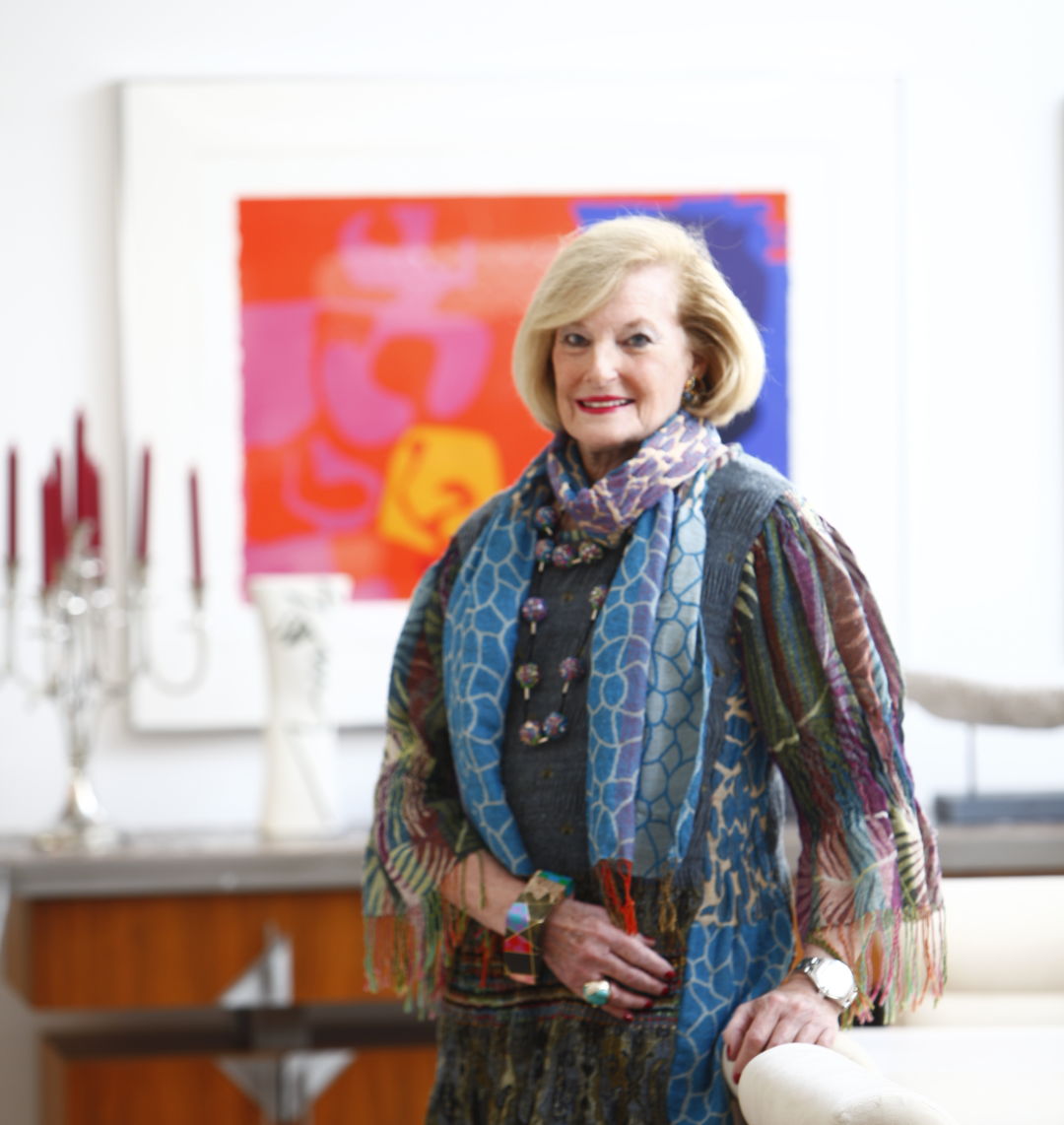
Ellen Berman retired as CEO of the Consumer Energy Council of America in Washington, D.C., in 2008.
“Sarasota is so welcoming that if you have a talent and you’re a credible person, there’s a place for you. There’s so much happening here that I love. Early on I co-chaired Ringling College’s International Design Summit, and I’m on the boards of the Hermitage Artist Retreat and the Ringling Museum.”
Image: Gene Pollux
Baby boomers retiring to Sarasota, like most boomers, are likelier to be college educated than the previous generation, he says. “They are much more interested in remaining engaged in some meaningful pursuit because they’re more likely to have a sense of mission in their lives, and the sort of brain that isn’t happy hanging around the house. Education—that’s the main reason why people want to remain engaged.”
He also notes the importance of a social network, which gives you “a reason to get up in the morning,” he says. “A strong social network is a strong boost to your health, so isolation in retirement is a fairly big risk factor; a lot of people define it as a public health issue.”
He cites an article he wrote for AARP The Magazine a few years ago about retirees who pulled up roots and landed in Florida without knowing a soul.
“The research is very clear,” he says. “It’s risky. The first thing on your to-do list should be to find a new social network, because if you don’t you’re more likely to develop heart disease, diabetes, the whole nine yards.”
Your finances also play a large role in retirement. Millions of people in their 60s and 70s will keep working because they have to. “But [for the most part] they are not the retirees moving to Sarasota,” says Edmondson. “We are attracting the most affluent segment of baby boomers, and there are abundant opportunities for retirees who have discretionary income and lots of spare time to get involved.”
Sarasota abounds with interesting pursuits to fill such a retiree’s time—more arts and cultural events than one person could possibly enjoy, quality lecture series that explore everything from current world events to how to program your iPad, fund-raising luncheons and parties that could have you dining at Michael’s On East nearly every night of the week.
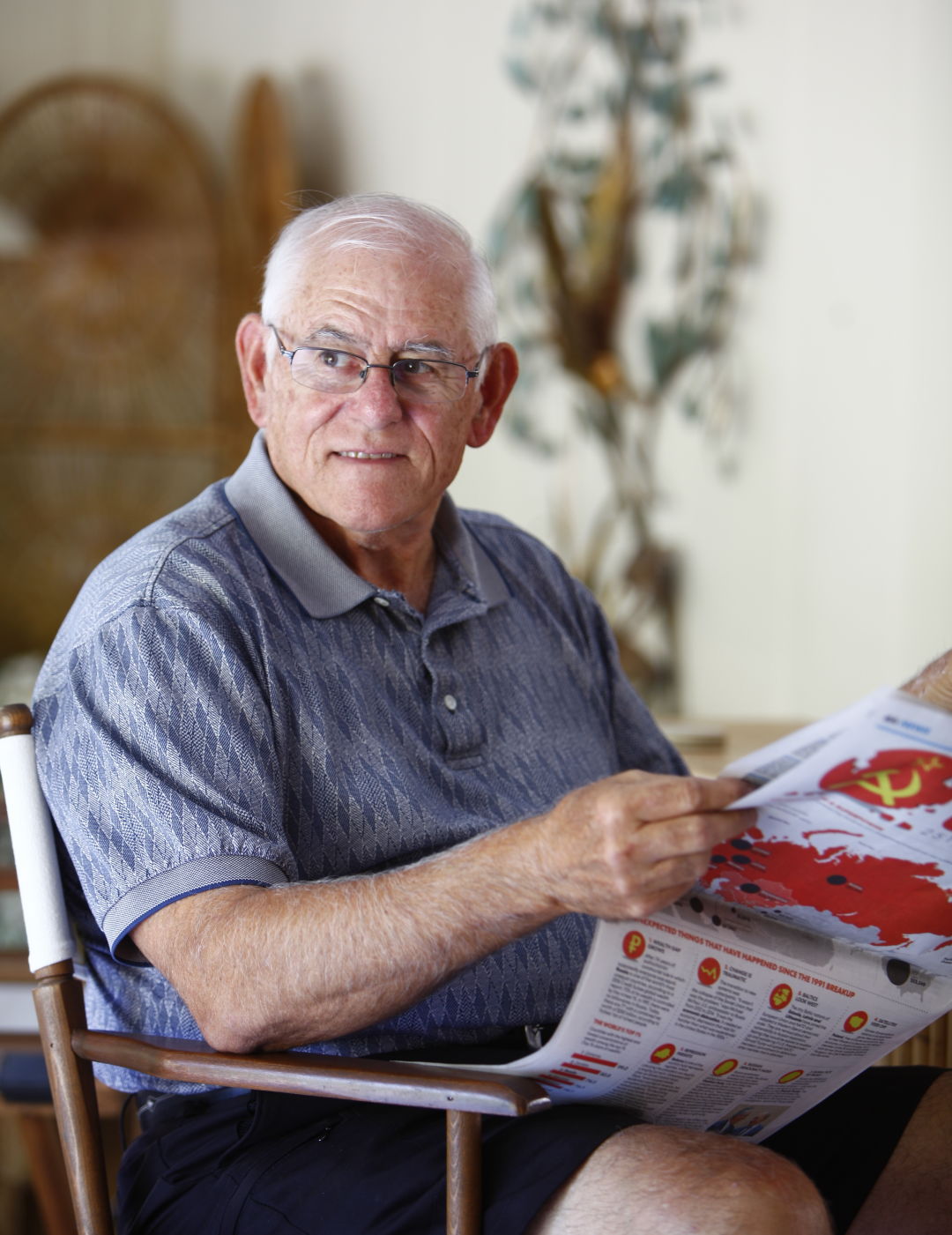
Bob Vedder retired in 2010 after 31 years as publisher of the Venice Gondolier Sun.
“I joined Venice Area Beautification with the express idea of bringing flowers to the downtown community. I arranged to get 40-some hanging baskets, 50 pots, fountains, statues—throwing a lot of color and beauty and some art at our downtown. For five years I did the watering myself; the city took it over last month and freed me to do a lot more planting.”
Image: Gene Pollux
And Edmondson suggests one more way retirees could get involved. “Successful communities are places where people from all walks of life mingle,” he says, but in Sarasota, “There are very large blue-collar populations and nonwhite and Latino populations that exist almost totally separate. The segregation between those groups makes it more difficult for you to build community.”
Such segregation is not unique to Sarasota, he says, but unlike some cities, Sarasota has the ability to do something about it. “Sarasota has this incredibly vital, well-educated, talented, energetic group of people who are looking for things to do—and they are doing fantastic things,” he says. If we harnessed those numbers and that talent to help bring our separate communities together, great things could happen, he says.
Sarasota psychologist Barbara J. Lorry—who, at 76, says, “I’m not retired and I’m not planning to [retire]”—says she sees less hand-wringing among her soon-to-be retired patients than she used to.
“Ten years ago people retired and played tennis and napped the rest of the day,” she says. “Suddenly their lives had no structure, they had no place to go and nothing to do. Today they're just more engaged.”
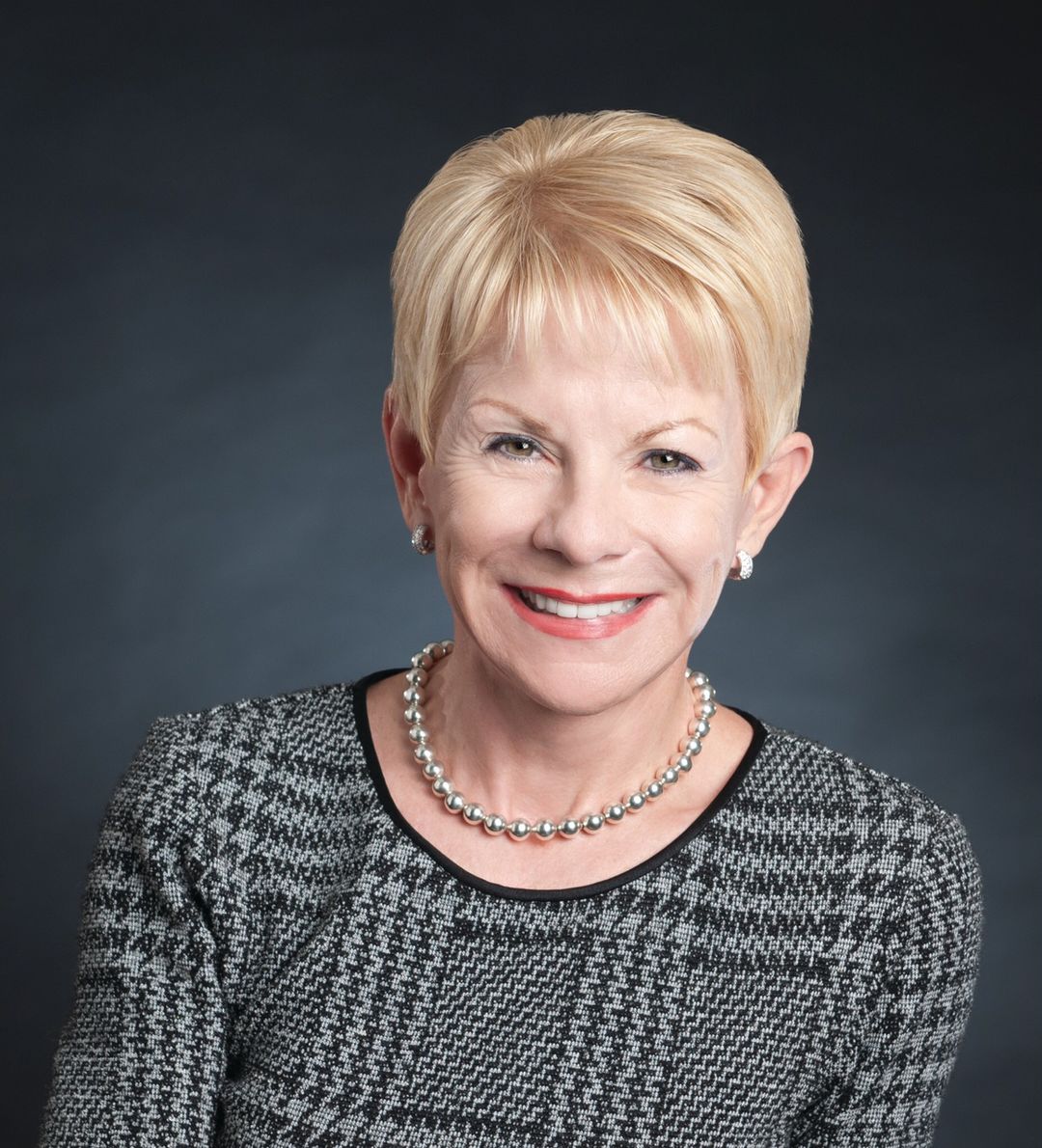
Cynthia McCague retired in 2010 as head of global human resources for Coca-Cola.
“I [considered] what brings me joy, what has meaning for me, how I might wish to be of service, how I will be intellectually stimulated and how I want to have fun. My list has included kayaking, active support for the Global Fund for Women and Women Donor Network, serving as a board director for two public companies, traveling the world with my late husband and now serving on the board of Bayfront 20:20.”
Image: Courtesy Photo
But when she does talk to people who are anxious about retirement, she brainstorms with them about how they might spend the time. “So many people identify themselves by what they do, and when that’s lost, they lose who they are. It’s hard then to figure out what to do next. I talk about what’s your day going to be like, what you’ve always wanted to do but never had time to. Do you like flowers? When was the last time you went to Selby Gardens? And sometimes, when there are too many choices, it helps to think about what you don’t want to do.”
Focus. Passion. Engagement. What do—and don’t—I want to do? I get the message, and I think I’m ready to start making my list.